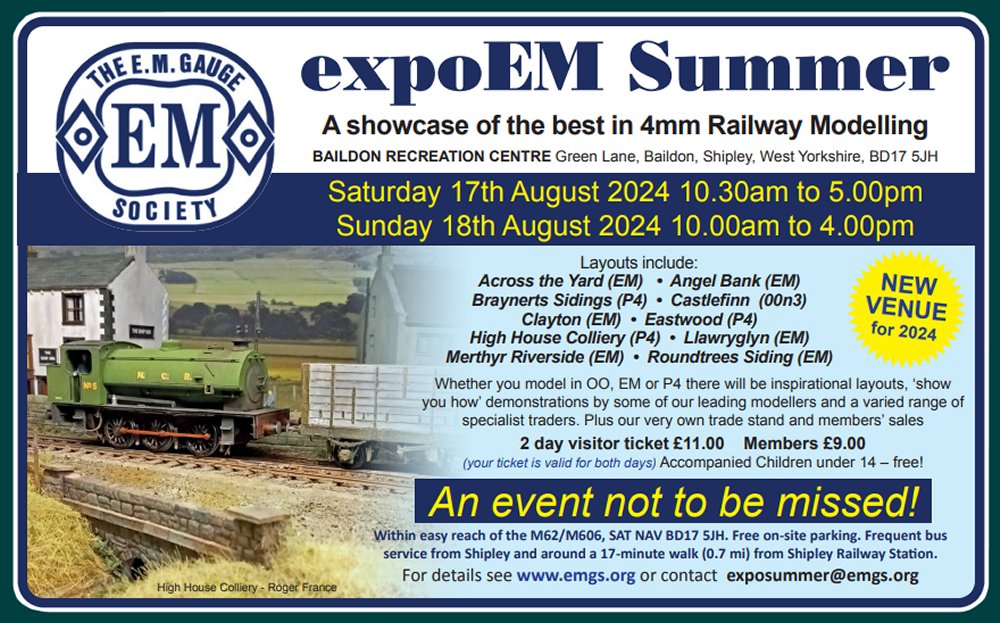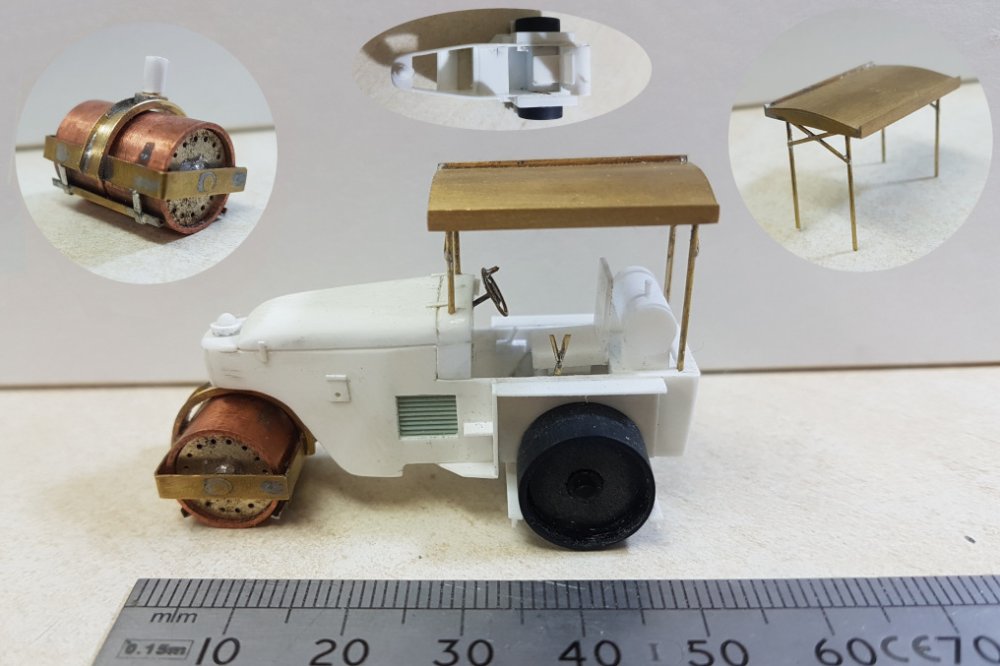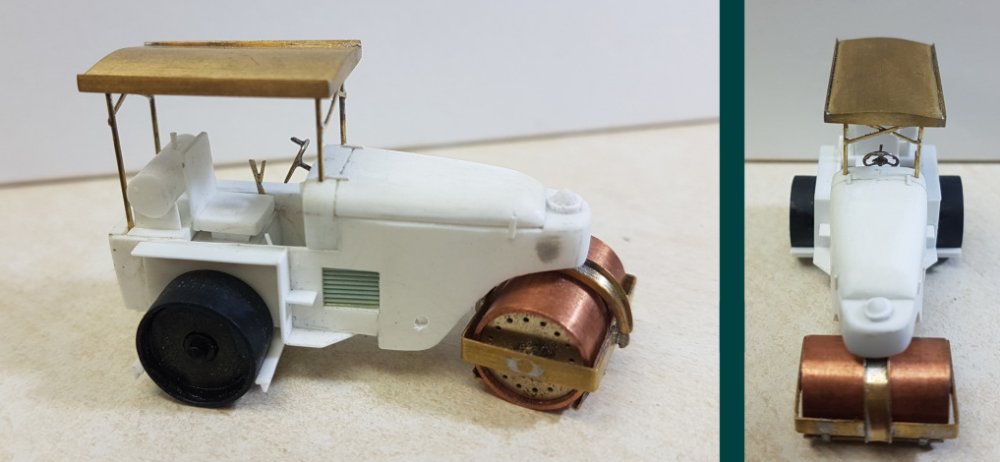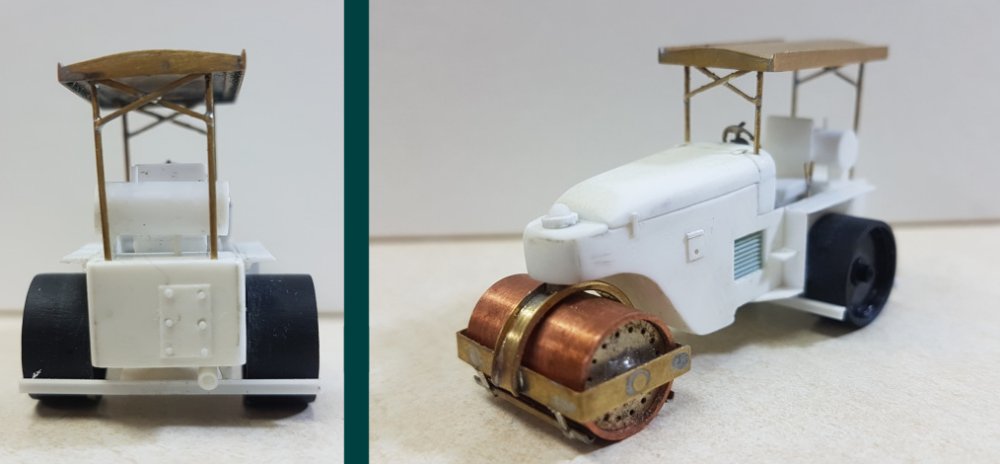By adopting a 'magpie' approach and raiding my stash of odds & sods, a reasonable looking
vehicle (in my eyes admittedly!)has been concocted - the front roller is actually a 10mm
end feed straight coupling as used in plumbing and its etched inserts were originally
intended to upgrade an Airfix Bulleid pacific kit!
On bigger road rollers the rear wheels tended to be a lot larger than the rolling drum so
could be depicted using a 15mm version of the end feed coupling but on smaller ones the wheels
were not much larger and so in this instance they have been constructed from the wheel sets of
a Triang Trestrol wagon which have been laminated together whilst the rest of the construction
has relied heavily on plastic profiles and bits of brass section.
*********************************************************************************************************************************************

KIER HARDY
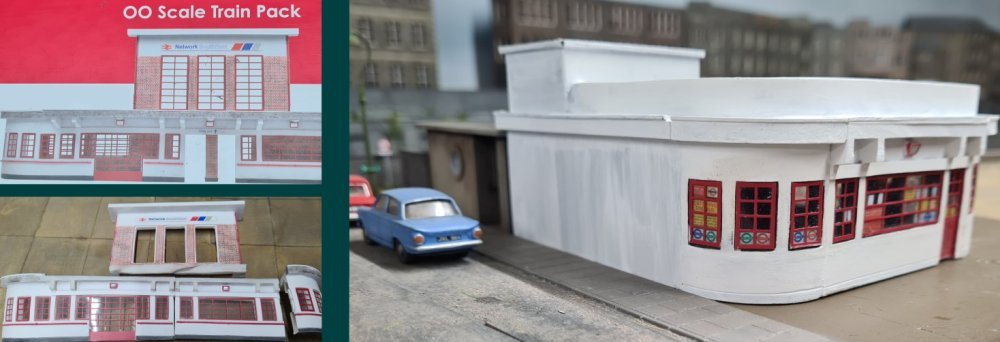
Having been inspired by Jonny's 3D printed model (featured last month) based on the
Vickers Supermarine station building at South Marston, the patch of undeveloped land
by the bus garage is now host to another building. I'd had this low relief Bachmann
building on the shelf for some time, with an idea to reform it into a driver / conductor
sign-on point, canteen and gate house. The resin structure was cut up and bonded back
together with a splash of white paint to hide the joins.

Dissatisfied with the whitewash finish on the building, I decided to go for a concrete
rendered finish to match the building behind. A set of gates were 3D printed by Jonny
in a style to match the period of the building.
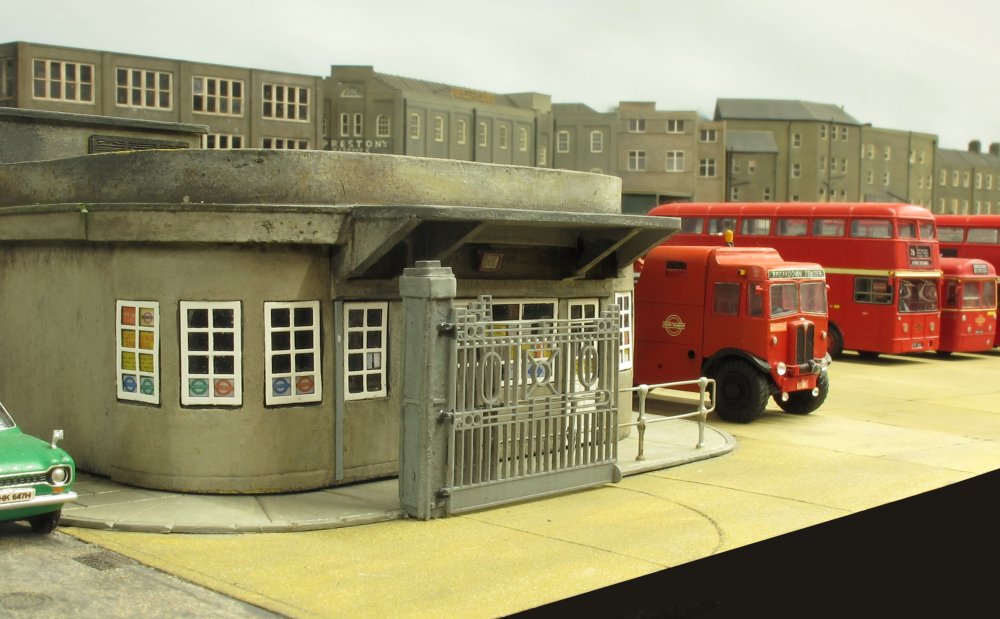
With a steel & cast iron post on which to hang the gates, the scene is starting to
take shape. The windows have been repainted and will require sills fitting before some
light weathering is carried out.
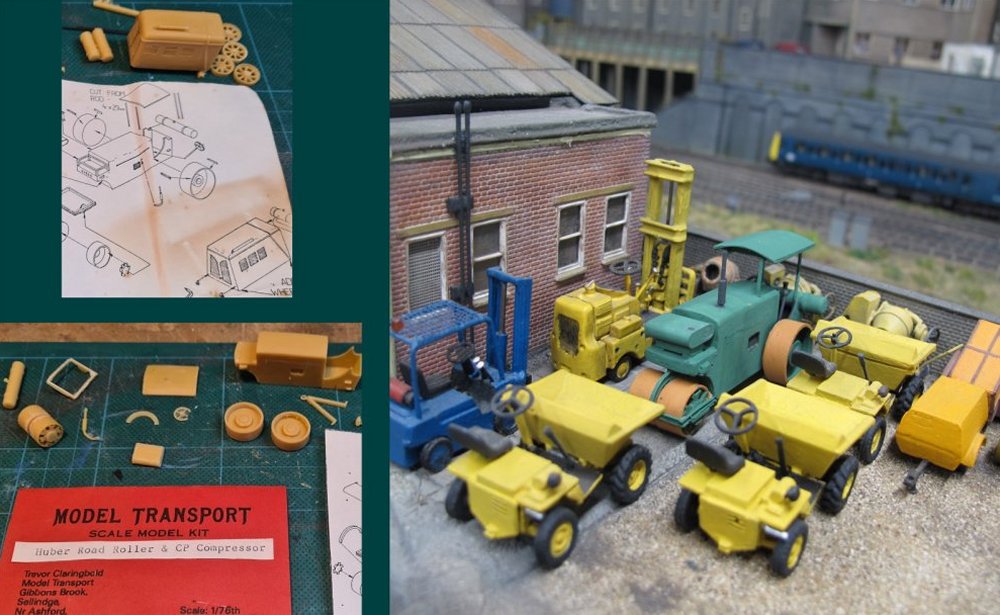
A crumbly old resin road roller kit arrived on the workbench courtesy of Steve Carter,
who thought it may be either bin fodder or something to tuck at the back of the plant
hire yard. It hasn't turned out too bad, and bolsters the equipment on show, even if
it turns to dust in a few years time!

Now a couple of snaps of recent visiting motive power from Greg's Shenston Road fleet,
starting with Accurascale Class 37 number 6700, recently weathered and into service.
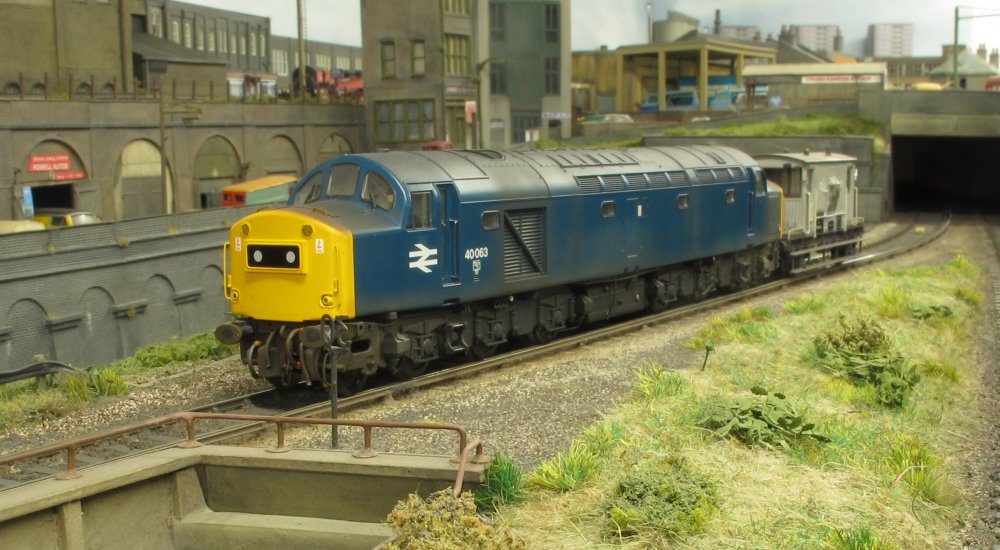
Also new into the fleet is 40063, one of the Scottish Class 40s that were converted
from disc to centre headcode box. A sound fitted Bachmann model recently captured on
video - something to watch out for in the future.
*********************************************************************************************************************************************

MATT OWEN
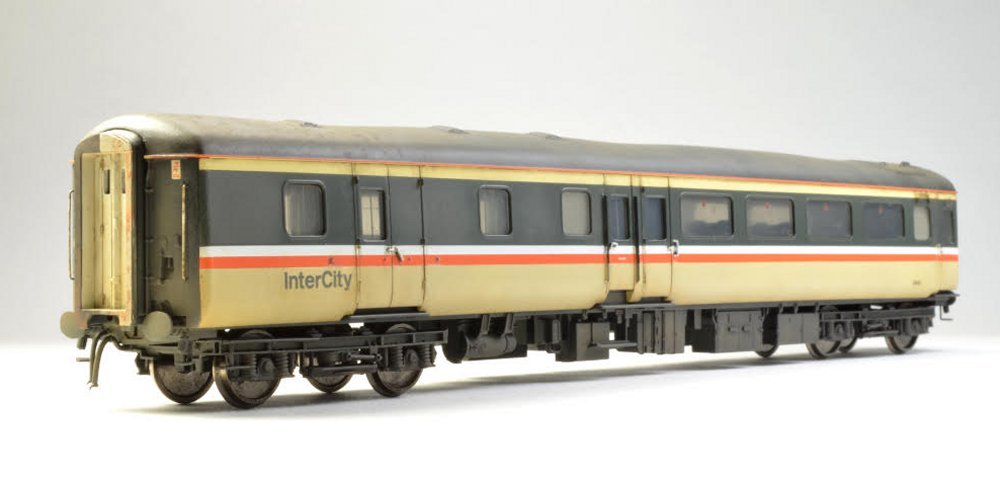
As a recent convert to EM gauge, this is the first of my Hornby Mk2e coaches to undergo
detailing. I managed to pick up a couple at very reasonable prices, so with a bit of work
they can look every bit as good as the more popular (and more expensive) Bachmann versions,
despite being slightly under length. This is the first in a rake of Mk2e coaches I'm
planning to detail, but the remainder will be in the blue / grey livery.
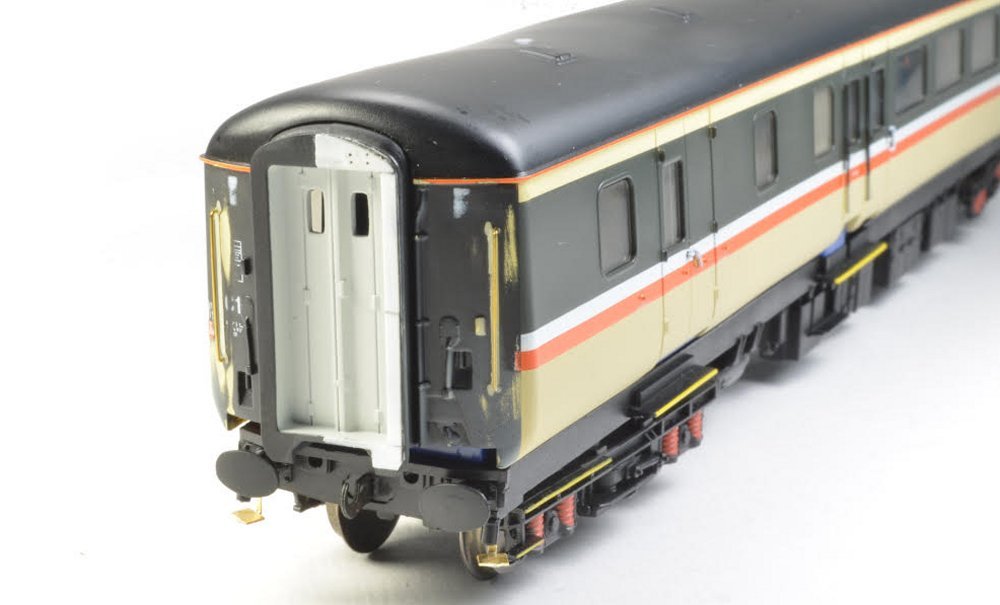
The biggest improvement was the replacement of the handrails on the coach ends, carefully paring
off the moulded items before being replaced with 0.33mm brass wire. The most difficult task in
this whole project was separating the body from the underframe - not an easy job at all!
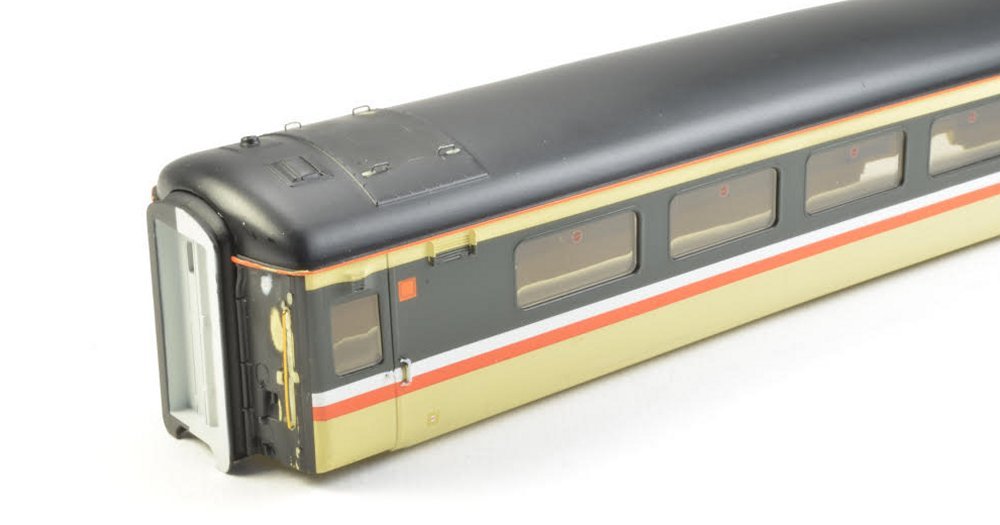
I also replaced the roof grab handles and believe the effort is worthwhile, because out of the
box these are just moulded plastic lumps. Usually, my projects aren't InterCity liveried coaches
- the vast majority are bauxite or grey coloured wagons.

Another big improvement is the addition of the steps, in this case made from scrap etched brass
soldered together. This is one omission that is really noticeable when comparing the Hornby and
Bachmann coaches. Despite their simplicity, adding them makes a big difference to the overall appearance.
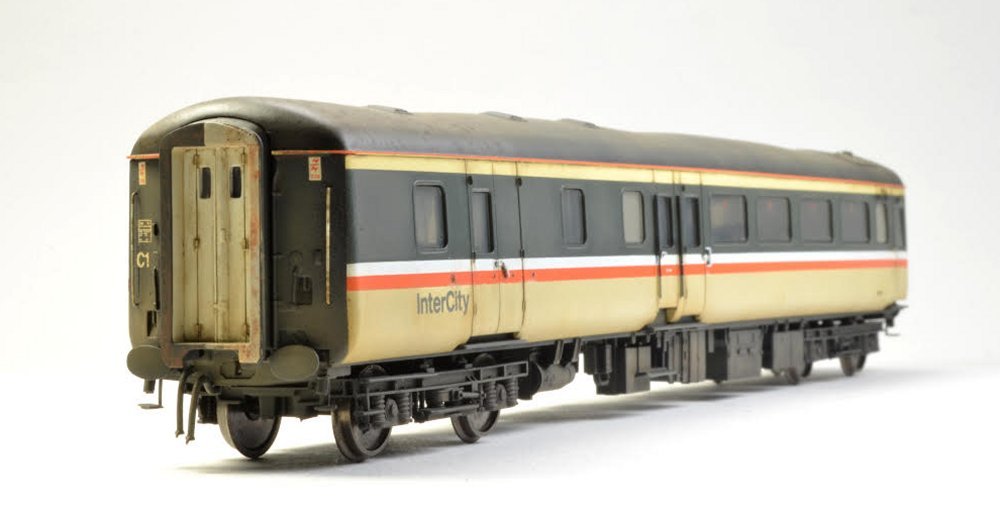
My coach came in poor external condition, the paintwork being scratched and scuffed in various
places. I repainted all the Executive light grey, dark grey and black areas - although I did
retain the stripes for convenience, and then the model was weathered to match prototype photos.
*********************************************************************************************************************************************

KARL CROWTHER

The Kentside lever frame is now completed and connected up to the layout – amazingly it
all worked first time. Most unusual, but a very welcome outcome. I just need to get the
pull plates re-printed as the printer ran out of ink! Between operating sessions, I tend
to leave all the block instruments at Line Clear so that the section signals can be
cleared (i.e. it stops the ‘illegal pull’ alarm from sounding).
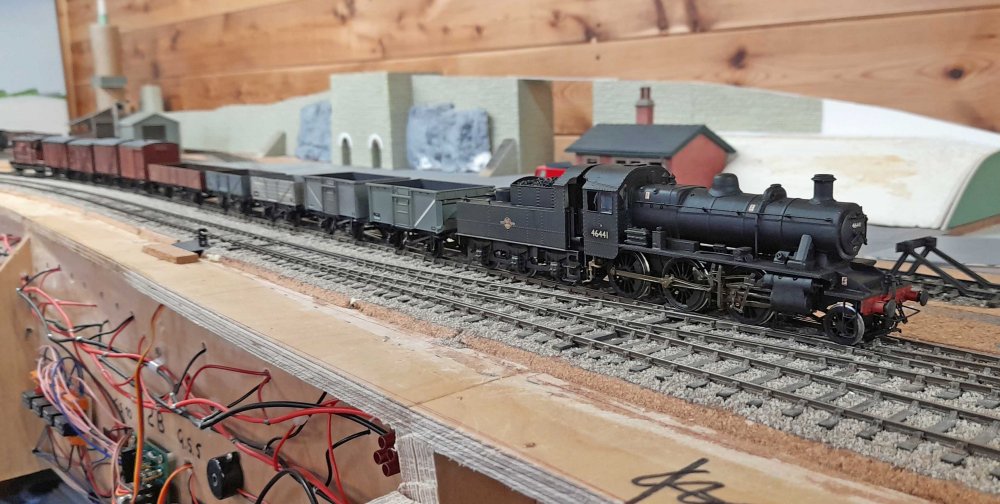
The Comet Ivatts are now also completed – here we have The Kentside Branch’s 46441
modelled in its final BR, unlined condition. It was a regular in the area including the
Lakeside Branch and so is really appropriate for the layout. Indeed, the kit was bought
when they first came out and was intended for the original Kentside, so it was good to
have had the excuse to eventually build it. An excellent kit in my view which produces
a very convincing portrayal of what I consider to be a most attractive loco. Makes me want to do another…….
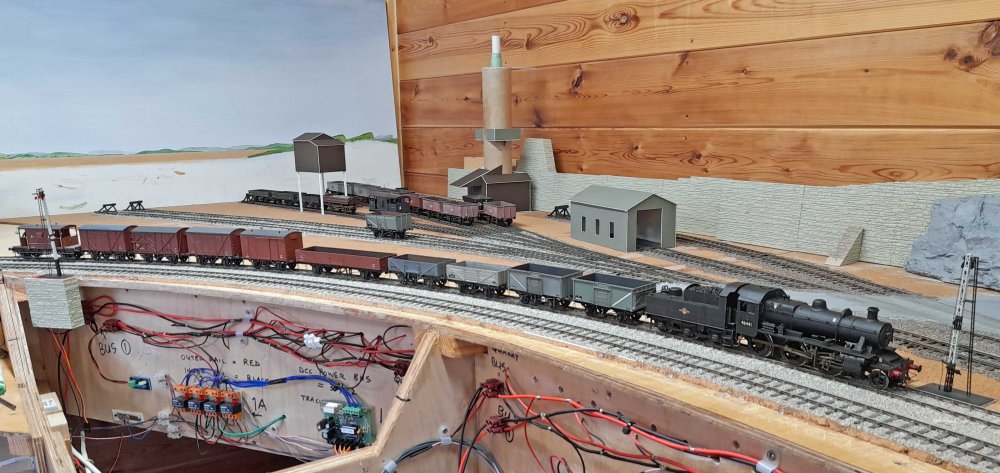
The Ivatt on a pick-up goods showing the sweep of the quarry sidings in the background.
Yes, I now realise the unfitted wagons are at the wrong end of the train! Predictably,
the Wills Coarse Stone sheets are seeing good use in making up the various retaining walls
behind the quarry.
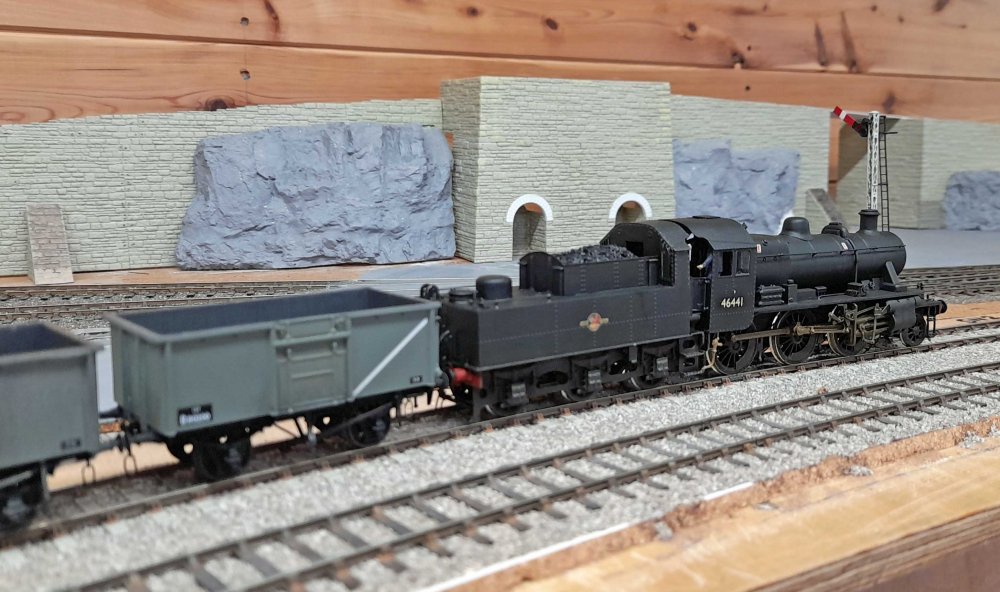
46441 again, with rock faces & quarry retaining walls in the background. Things have been
a little more complicated in this area because some sections of this scenery will need to
be removable to give access to various point servos & control boards concealed beneath.
Apologies for depth of field issues here (and generally in these views), serves me right
for doing quick snaps on the mobile phone – will try and use the proper camera next month……
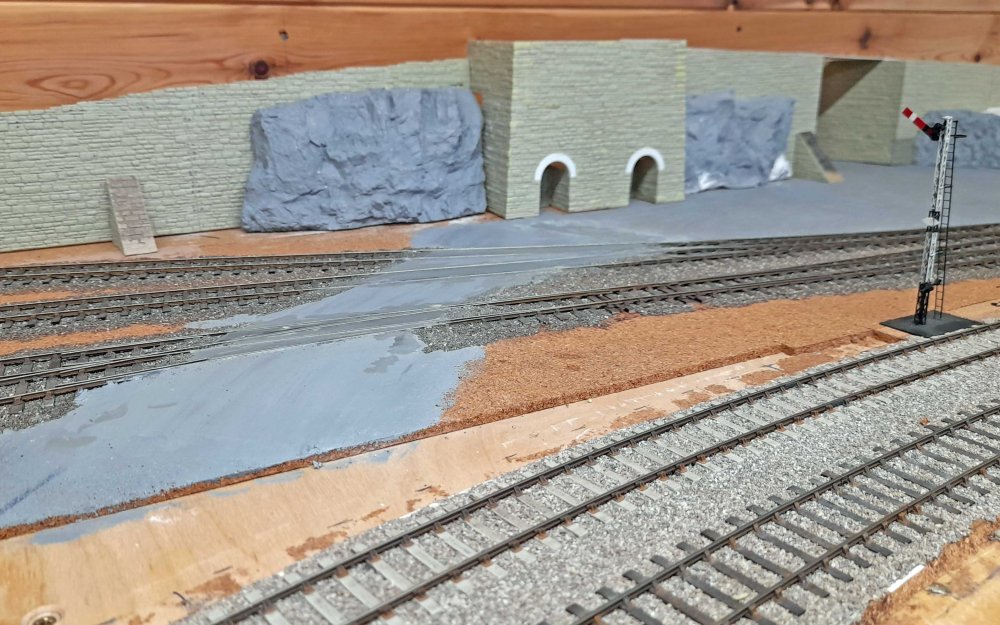
It was felt that there would be roadway access cross the quarry tracks and this has been
built up using plastic card, Das modelling clay and Milliput filler. In truth, most of the
track in the quarry would probably have just the rail tops showing, with the remainder
submerged in stone residue. Anyway, much evidence of initial ballasting activity can also be seen here.
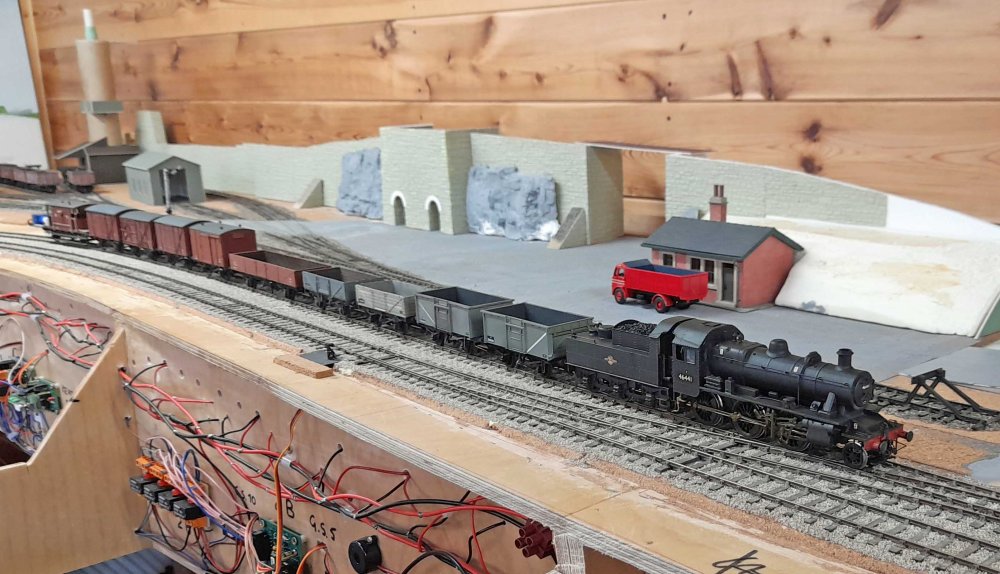
A final view across the quarry area which hopefully gives an impression of how the completed
scene might eventually appear.
*********************************************************************************************************************************************
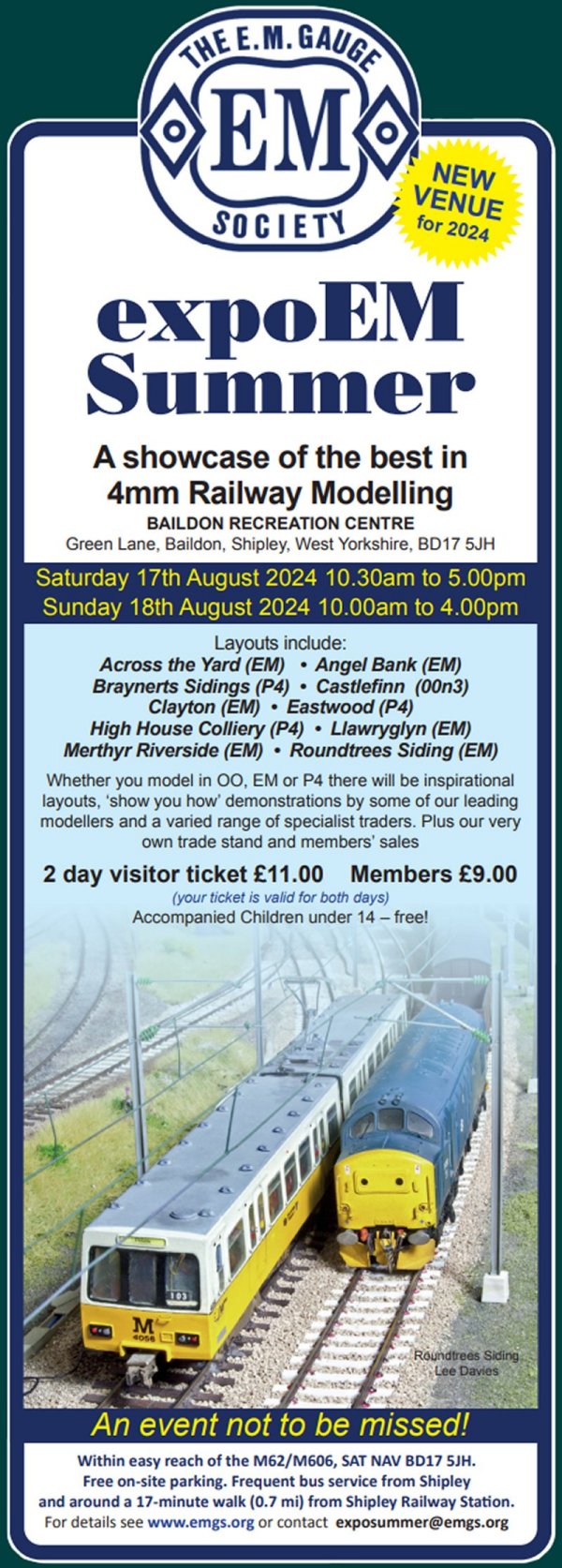
*********************************************************************************************************************************************

ALAN DEWEY
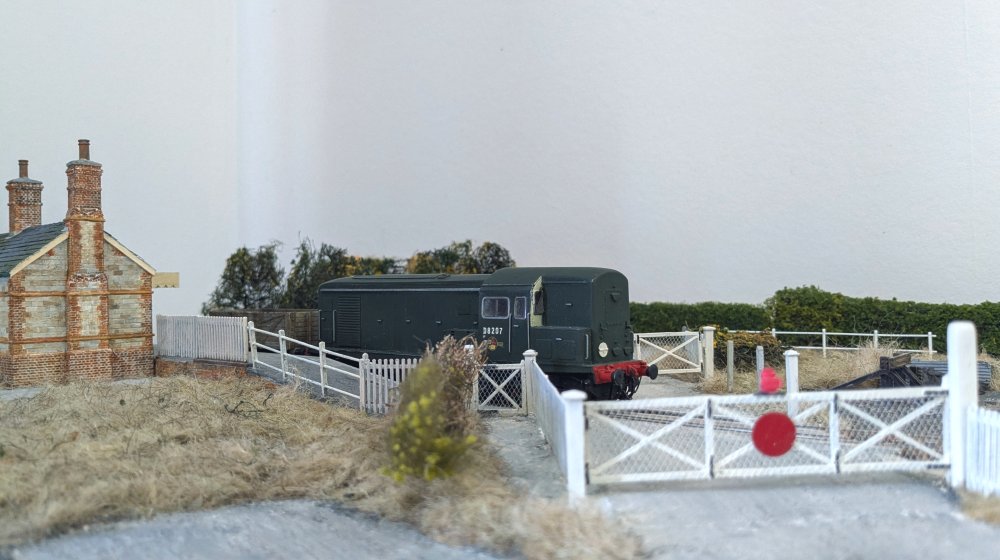
Advance notice that Whitley was to be making its debut appearance at
the Olney exhibition in
September. This event is now cancelled.
Whitley - ex-Great Eastern branchline.


